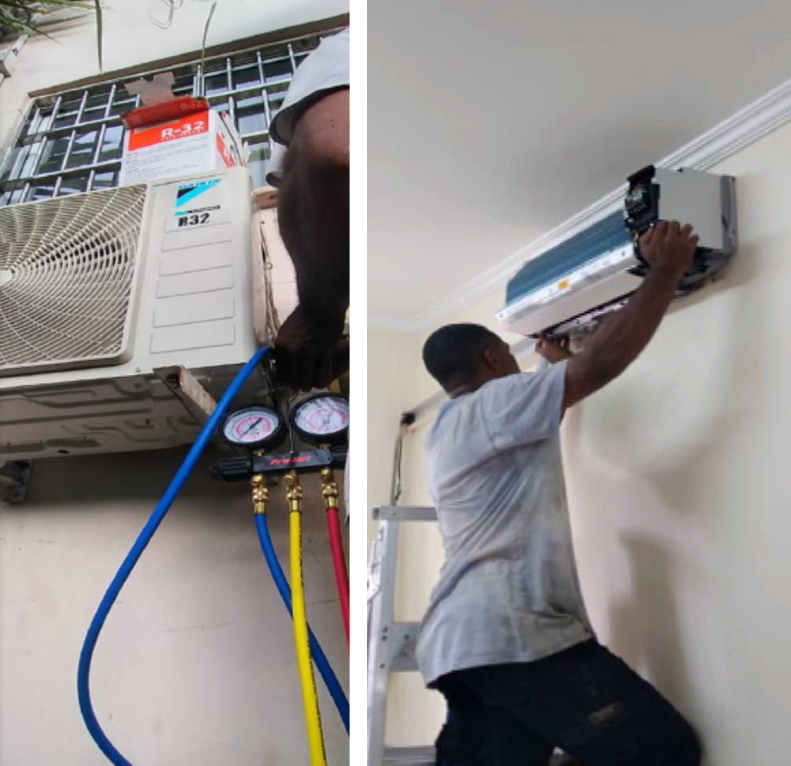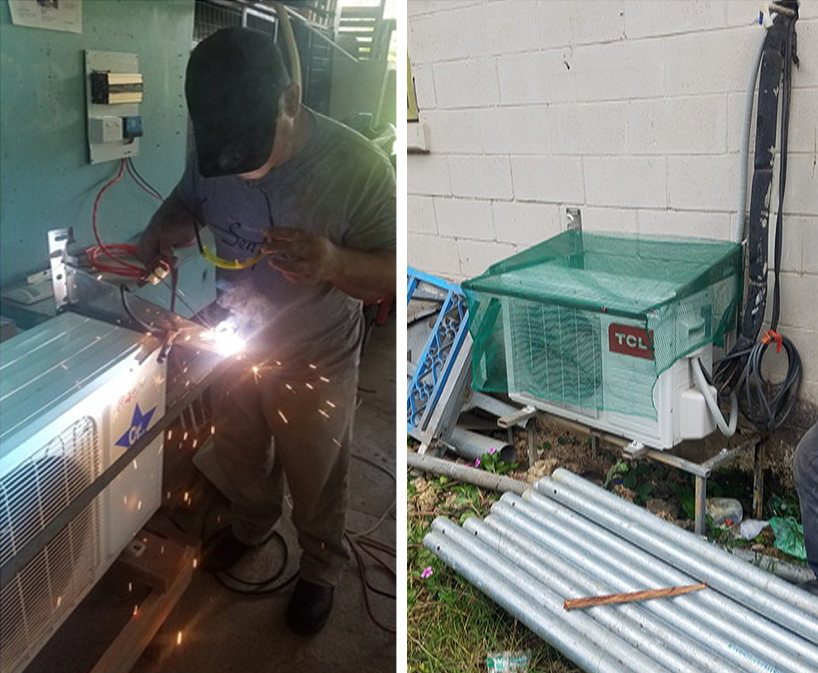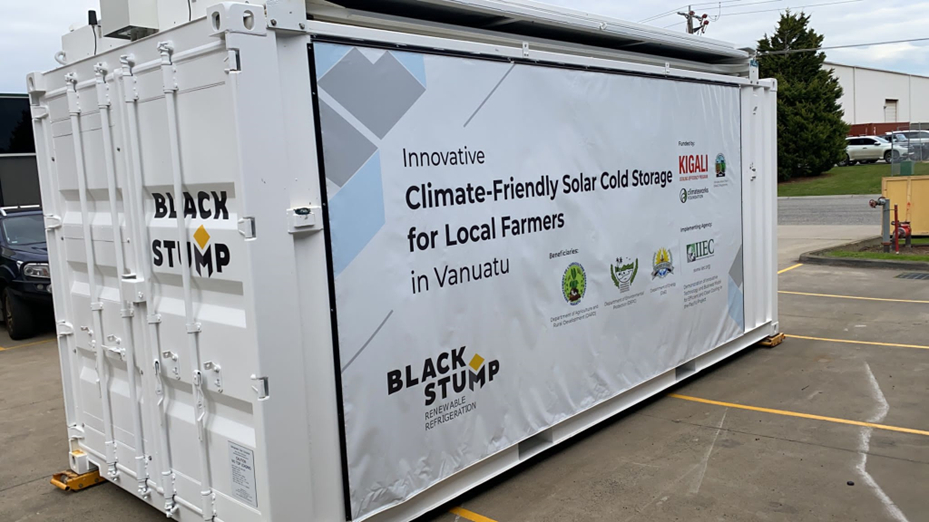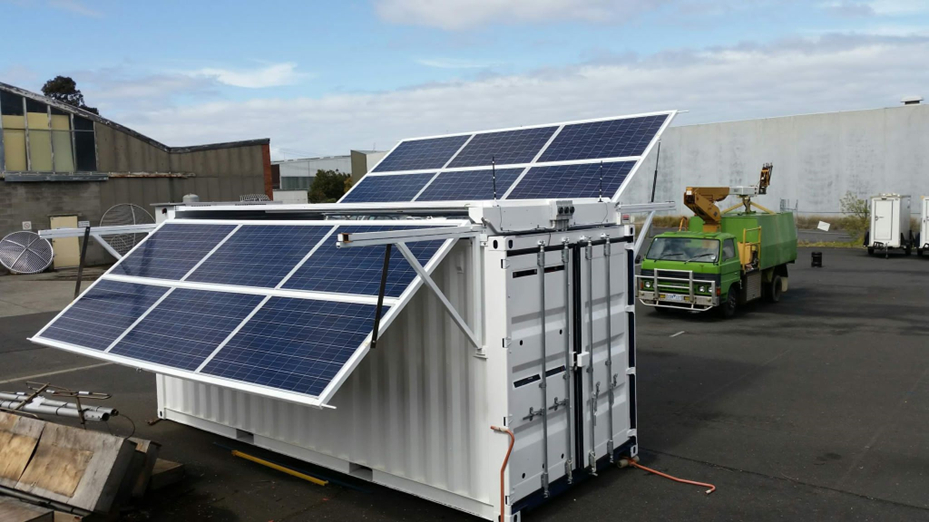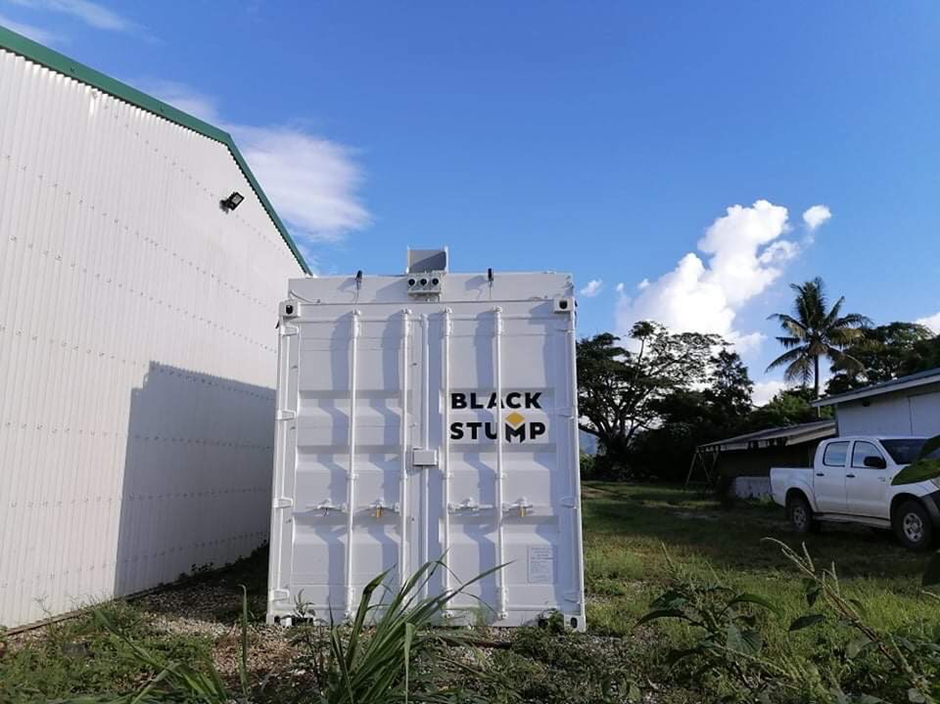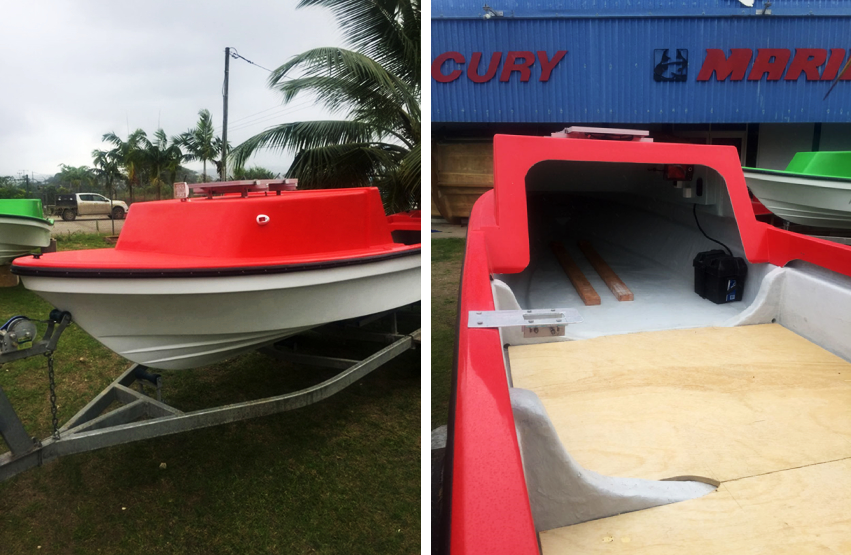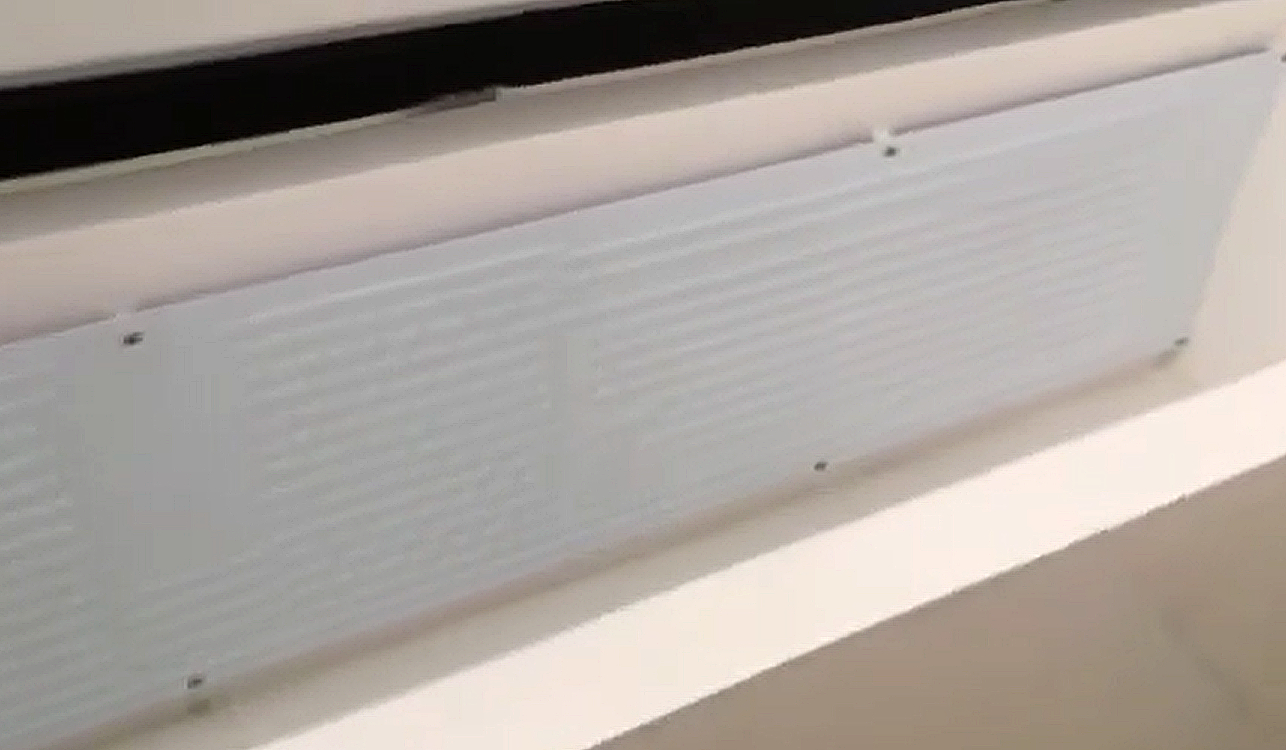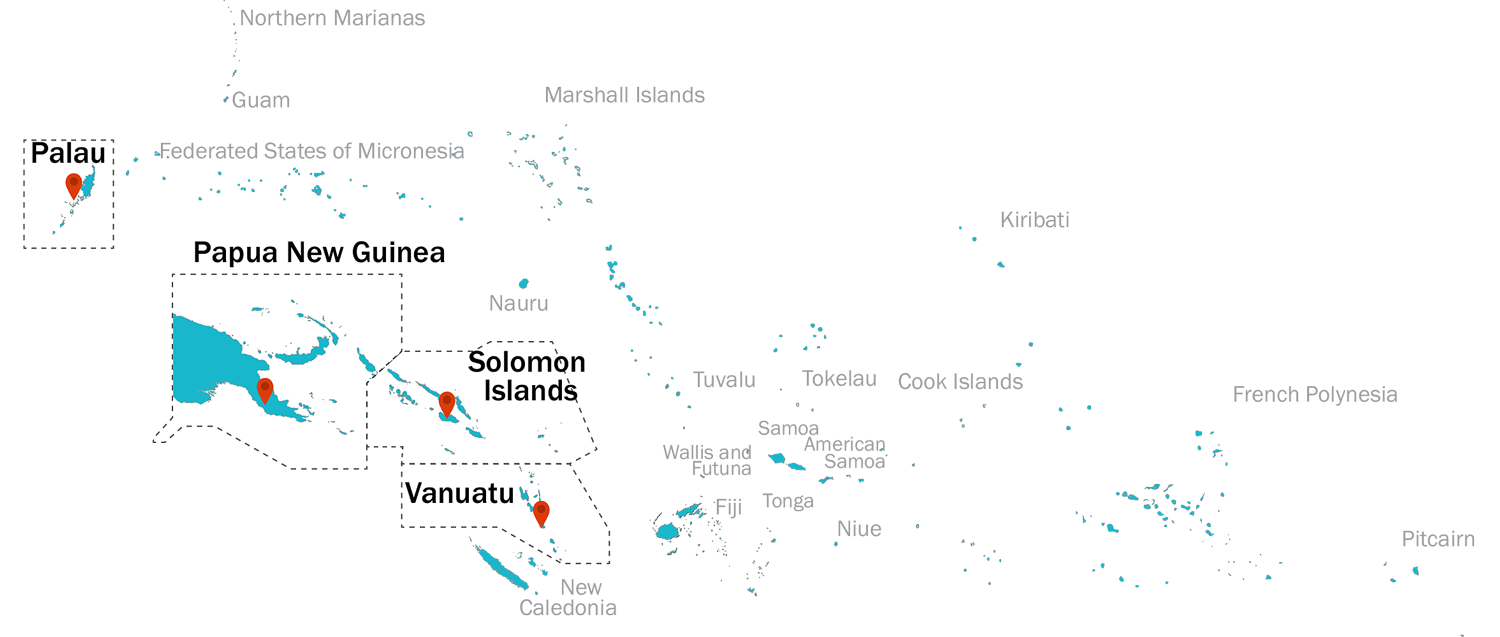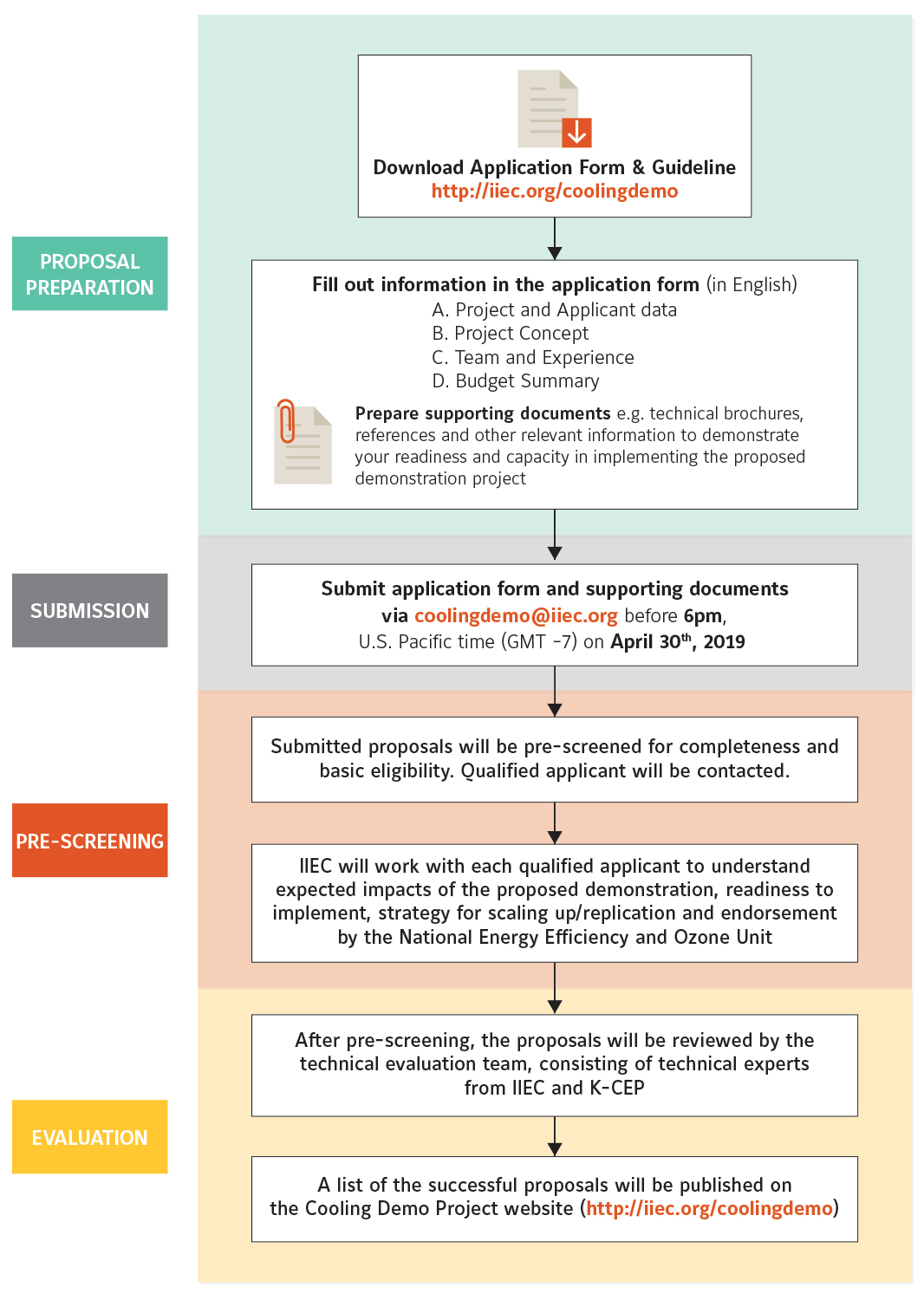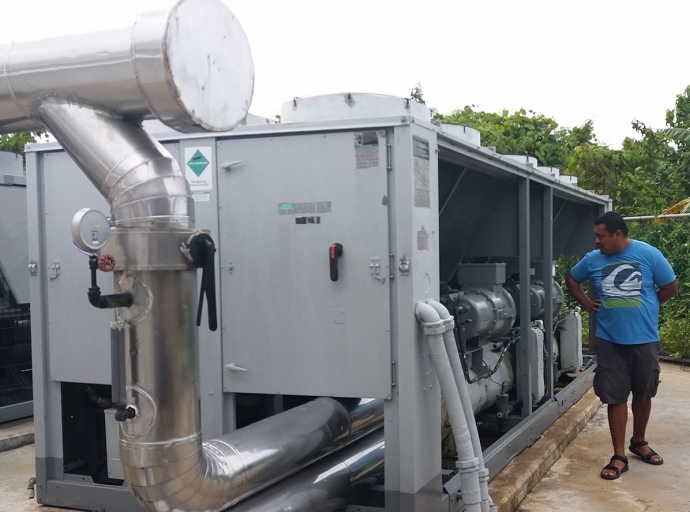It should be noted that the COVID-19 pandemic has significantly impacted the overall progress of project implementation. Despite multiple challenges and implementation issues, the Cooling Demo Project has been able to collaborate with the sub-grantees and suppliers to complete delivery and/or installation of energy efficient and clean cooling technologies, as follows.
Palau - Demonstration of On-bill Financing Scheme for Energy Efficient Air-Conditioners
R32 RACs at PNOC Building (Left) and EQPB Office (Right)
The pilot project agreement was signed by PEA in August 2019. Two Buildings (i.e., Palau National Olympic Committee - PNOC Building, and Environmental Quality Protection Board - EQPB Office) were selected by PEA as the two demonstration sites for energy efficient inverter RACs with R32 refrigerant. The measurement of operating hours and compilation of monthly electricity bills were conducted before the replacement of RACs. Note that Palau uses a 60 Hz power supply system which is similar to the US and locating RAC suppliers in Asia and the Pacific who are willing to deliver a small quantity of 60Hz R32 inverter RACs to Palau has proven to be a highly challenging task, since most of R32 RAC models available in Asia and the Pacific are 50 Hz models.
Following coordination with potential local suppliers in Palau, and international suppliers in China, Guam, the Philippines (where 60 Hz power supplies are also used.), and Thailand, PEA and IIEC identified one RAC regional supplier in Guam with a local agent in Palau agreed to supply R32 inverter RACs for this pilot demonstration project. Based on the RAC unit costs proposed by the selected supplier, seven RAC units in PNOC building and EQPB office were identified for EE RAC retrofits (see Table below).
Number of Existing RACs identified for R32 Inverter RAC Retrofit
|
Building
|
Quantity (Unit)
|
Rated Cooling Capacity (BTU/hr)
|
|
Palau National Olympic Committee (PNOC)
|
1
|
9,000
|
|
2
|
18,000
|
|
2
|
24,000
|
|
Environmental Quality Protection Board (EQPB) Office
|
1
|
9,000
|
|
1
|
24,000
|
|
Total
|
7
|
|
In February 2020, an order of seven units of Toshiba Carrier 60Hz inverter AC with R32 was confirmed with the supplier. Due to the COVID-19 pandemic, delivery of the RAC units had been delayed. The shipment arrived Palau in June 2020, and the installation works began and completed in August 2020. At the time of the RAC installation, PNOC Building was under renovation, and the supplier had to relocate some RAC units to new installation areas. The length of the standard copper piping kit with insulation was not sufficient for these relocations, and IIEC decided to utilize the available fund to cover the additional cost of the extra copper pipes. Key stakeholders and milestones of this pilot demonstration project are shown in Table below.
|
Description
|
Details
|
|
Date of Contract Award
|
1 August 2019
|
|
Name of Awarded Applicant
|
Palau Energy Administration (PEA)
|
|
Name of Clean Cooling Technology Supplier
|
Globus Trading (import Toshiba Carrier)
|
|
EE and Clean Cooling Technology
|
R32 Inverter RACs
|
|
Delivery of EE and Clean Cooling Technology
|
June 2020
|
|
Installation Completed
|
August 2020
|
Papua New Guinea - Efficient & Clean Cooling Project
RAC Installation at Wellness Lodge
Goans Engineering and Consultancy Ltd. (GECL) signed an agreement for implementation of this pilot demonstration in August 2019. Despite the impacts of COVID-19 pandemic in PNG, GELC managed to approach multiple commercial establishments in PNG, and discussed the approach of the pilot demonstration project. Following discussion with owners and management of these commercial establishment, Wellness Lodge, located in East Boroko, Port Moresby, agreed to participate in the pilot demonstration project. With assistance from an electrician employed at the lodge, the GECL audit team conducted the energy audit from May 25th to 26th, 2020. The audit focused essentially on identifying energy and cost saving opportunities to raise the energy efficiency and performance of the lodge.
After the energy audit, sixteen units of R32 inverter RACs with rated cooling capacities of about 9,000 BTU/hr and 12,000 BTU/hr were procured from Daikin PNG. Noted that these R32 inverter RACs were not the standard models imported by Daikin PNG, and a special order was made by Daikin PNG with a purchase order from GECL. The R32 inverter RAC units were delivered to Port Moresby, PNG, in late November 2020. However, due to the COVID-19 pandemic and Christmas holidays, the installation of the 16 units RAC was delayed and completed in January 2021.
An energy data logger was installed at the main power supply to capture power demand and monitor building energy consumption from December 28th, 2020 to February 3rd, 2021. The data logger aimed at recording power demand and energy consumption before and after installation of the new energy efficient R32 inverter ACs, and the measurement results were analyzed to determine savings from energy efficient and climate-friendly ACs.
Key stakeholders and milestones of the pilot demonstration project in PNG are shown in Table below.
|
Description
|
Details
|
|
Date of Contract Award
|
1 August 2019
|
|
Name of Awarded Applicant
|
Goans Engineering & Consultancy Ltd.
|
|
Name of Clean Cooling Technology Supplier
|
Daikin PNG
|
|
EE and Clean Cooling Technology
|
R32 Inverter RACs
|
|
Delivery of EE and Clean Cooling Technology
|
November 2020
|
|
Installation Completed
|
January 2021
|
Solomon Islands - Demonstration of Sheltering Effect on AC Operational Efficiency
The Solomon Islands Refrigeration & Air Conditioning Association (SIRAC) signed an agreement in July 2019, and the design of the outdoor unit shelter kit consisting of shade mesh sun filter, aluminium flat bar, screws and cable tie was proposed. The design is very easy for technicians to install and remove since the flat bar will be mounted on the original screws at the edges of the outdoor units. Following the initial trial, the shelter kit may be further improved in design for better results. The shelter kits were fabricated (see photo below) and attached to existing R22 fixed speed RACs and new R32 inverter RACs to compare the energy savings impact results. Two new R32 inverter RACs were procured by SIRAC with funding from the Cooling Demo Project. Installation of the two new R32 inverter RACs is completed October 2019.
Fabrication and Installation of Shelter Kits for Condensing Units in Solomon Islands
Key stakeholders and milestones of the pilot demonstration project in Solomon Islands are shown in Table below.
|
Description
|
Details
|
|
Date of Contract Award
|
22 July 2019
|
|
Name of Awarded Applicant
|
Solomon Islands Refrigeration & Air Conditioning Association (SIRAC)
|
|
Name of Clean Cooling Technology Supplier
|
Kelvinator
|
|
EE and Clean Cooling Technology
|
R32 Inverter RACs
|
|
Delivery of EE and Clean Cooling Technology
|
September 2019
|
|
Installation Completed
|
October 2019
|
Vanuatu - Demonstration of Cold Storage for Preservation of Produce for Local Farmers
IIEC supported DEPC in coordination with potential suppliers of off-grid cold storage in Africa, Australia, India, the UK and the USA. Discussion with various potential suppliers reveals that many potential suppliers still rely on compressor technologies with high GWP refrigerants. Although a unit with low GWP refrigerant can be ordered, the unit cost is higher than the standard models, and the cost apparently exceeds the available budget. The COVID-19 pandemic in 2020 further complicated the supplier identification process, and IIEC and DEPC spent the entire year of 2020 to compile all relevant technical specifications and costs of potential off-grid solar cold storage technologies.
Following the long coordination with the potential suppliers, IIEC and DEPC received five quotations of solar/hybrid cold storage technologies, i.e., Aldelano (USA), Black Stump Technologies (Australia), Cold Hubs (Nigeria), Ecofrost (India), and Inviro Choice (UK). However, only Black Stump, Cold Hubs and Inviro Choice (UK) are able meet the technical requirement of low GWP refrigerant. In terms of the unit costs, all the proposed unit costs including installation services exceed the available budget. However, IIEC and DEPC were able to negotiate with Black Stump Technologies, based in Melbourne, Australia, to deliver a refurbished unit with new compressor with low GWP refrigerant, solar PV panel and batteries within the available budget.
IIEC confirmed the order for the off-grid solar cold storage in February 2021, and the refurbishment process was completed and ready to ship out in July 2021. It was agreed during the price negotiation with Black Stump Technologies that shipment of the off-grid solar cold storage unit from Melbourne, Australia, to Port Vila, Vanuatu, will be responsible by DARD. The overall shipment process was delayed for a few months due to the ongoing lock down measure in Melbourne, the special requirements to place the off-grid solar cold storage unit on top of all containers to prevent damage of solar PV panels, and approval of the payment of the shipment cost by the Government of Vanuatu to the shipping agent.
The shipment from Melbourne to Port Vila was proceeded in October 2021, and the unit was delivered to Port Vila in late November 2021 (see the photos below). DEPC and DARD plan to move the off-grid solar cold storage unit to the installation and begin operation of the unit by 2022.
Off-Grid Solar Cold Storage Unit offered by Black Stump Technologies, Australia
Off-Grid Solar Cold Storage Unit with Expanded Solar PV Panels
Off-Grid Solar Cold Storage Unit in Transition to the Installation Site in Vanuatu
Key stakeholders and milestones of the off-grid solar cold storage unit in Vanuatu are shown in Table below.
|
Description
|
Details
|
|
Date of Contract Award
|
1 September 2019
|
|
Name of Awarded Applicant
|
Department of Agriculture and Rural Development (DARD), Vanuatu
|
|
Name of Clean Cooling Technology Supplier
|
Black Stump Technologies
|
|
EE and Clean Cooling Technology
|
Off-Grid Solar Cold Storage
|
|
Delivery of EE and Clean Cooling Technology
|
29 November 2021
|
|
Installation Completed
|
TBC (still ongoing)
|
Vanuatu - Efficient and Clean Refrigeration for Small Banana Boats
Tuff Boats Limited signed an agreement in July 2019. Note that the initial design concept of using a refrigerator/freezer compressor designed for household applications for the 7-meter long boat is not technically feasible because the compressor designed for non-marine applications may not be able to withstand vibration on the boat and leakage of refrigerant is highly possible. Considering this, Tuff Boats Limited ordered a compressor for marine applications from a supplier in Australia. Construction of the prototype boats with solar PV panel and solar charge controller was completed in July 2020 (see photo below).
Prototype Boat with Solar PV and Charge Controller
A Prototype Boat with Solar PV and Charge ControllerA prototype of solar freezer boat was completed in September 2020 (see photos below). However, Tuff Boat could only procure the compressor units for marine applications with R134a refrigerant which has 1,430 GWP. Following the discussion with the Clean Cooling Collaborative, it was agreed that development of the solar freezer boat prototype could be continued by Tuff Boat. However, the project grant cannot cover the cost of a compressor with high GWP refrigerant R134a.
Boat with Solar PV and Freezer
Evaporator Coil in Freezer on Solar Boat
Key stakeholders and milestones of the solar freezer boat project in Vanuatu are shown in Table below.
|
Description
|
Details
|
|
Date of Contract Award
|
9 July 2019
|
|
Name of Awarded Applicant
|
Tuff Boats Limited
|
|
Name of Clean Cooling Technology Supplier
|
N/A
|
|
EE and Clean Cooling Technology
|
Solar Freezer Boat
|
|
Delivery of EE and Clean Cooling Technology
|
September 2020
|


